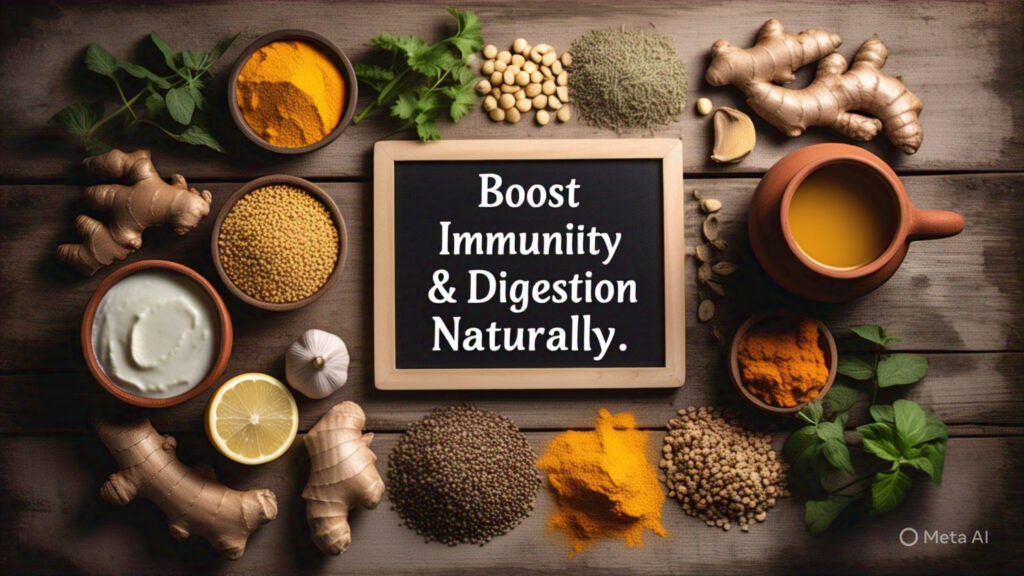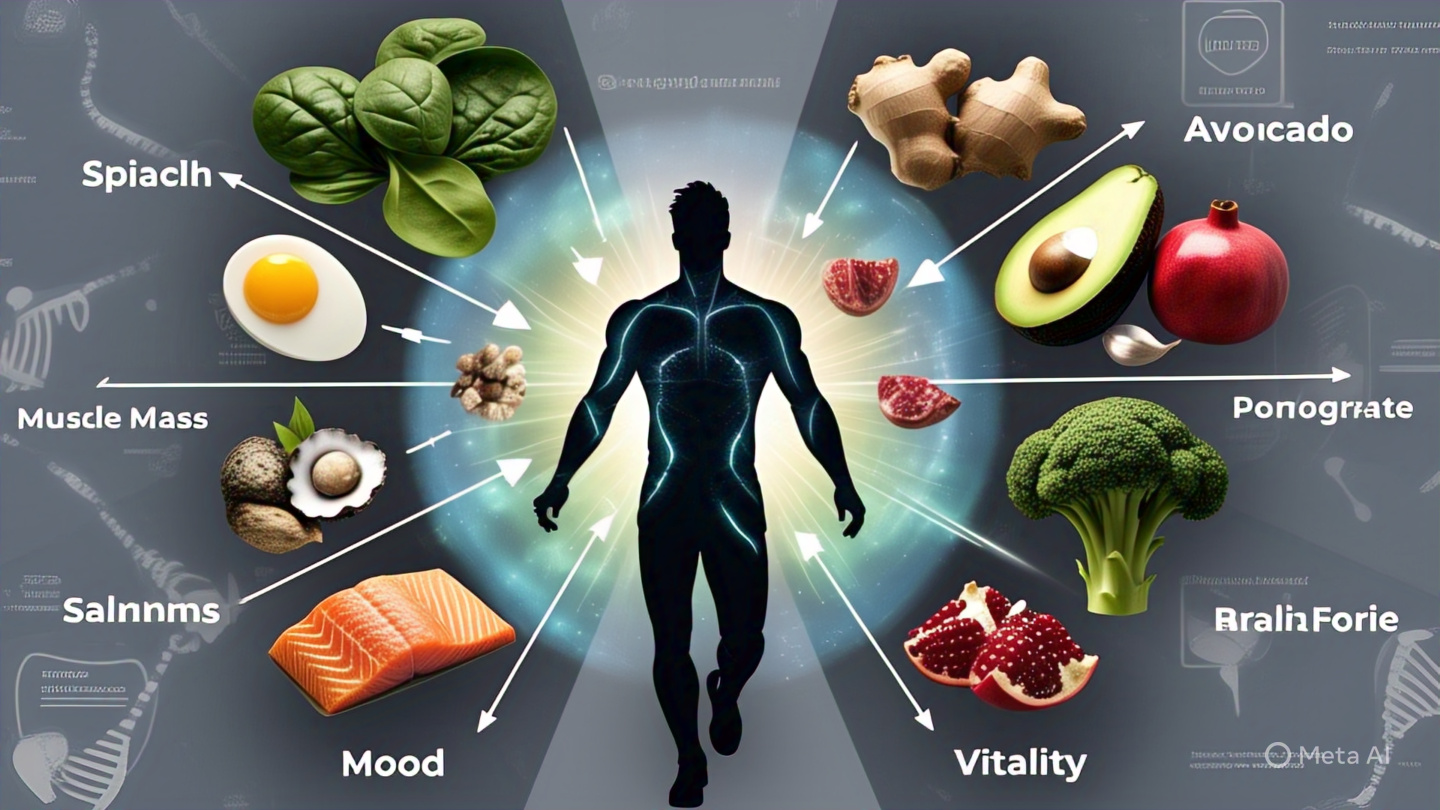Understanding the Importance of a Healthy Diet
A healthy diet is the cornerstone of overall well-being and longevity. It provides the essential nutrients our bodies need to function optimally, from supporting our immune system to aiding digestion and enhancing metabolism.
Research shows that maintaining a balanced diet can reduce the risk of chronic diseases by up to 30%. This statistic underscores the vital role that nutrition plays in our daily health and longevity.
Why Diet Matters for Immunity
Nutrition significantly influences our immune system’s strength. A diet rich in vitamins, minerals, and antioxidants can enhance immune responses, helping our bodies fend off illnesses. Foods high in vitamin C, zinc, and probiotics are particularly beneficial.
Incorporating these immune-boosting foods into your meals can lead to a healthier lifestyle, reducing the frequency and severity of infections.
The Role of Nutrition in Digestion
Proper nutrition is crucial for maintaining a healthy digestive system. A diet high in fiber from fruits, vegetables, and whole grains promotes regular bowel movements and supports gut health.
When digestion is efficient, nutrient absorption improves, contributing to overall wellness. Traditional Indian foods, often rich in spices and fibers, can greatly enhance digestive health.
Metabolism and Its Impact on Energy Levels
A healthy diet plays a significant role in regulating metabolism, which in turn affects our energy levels. Foods rich in protein and healthy fats can stimulate metabolic processes, helping the body convert food into energy more effectively.
By choosing nutrient-dense Indian foods that promote metabolic health, you can maintain higher energy levels throughout the day, aiding productivity and overall vitality.
Key Nutrients to Include in Your Daily Diet
Vitamins, minerals, and fiber are essential nutrients that play a crucial role in maintaining overall health.
These nutrients support various bodily functions, from boosting immunity to enhancing digestion and fueling metabolism.
Incorporating a variety of Indian foods rich in these nutrients can significantly improve your daily nutrient intake.
Research indicates that a diverse diet can lead to better health outcomes and vitality.
Vitamins and Minerals for Boosting Immunity
Vitamins A, C, D, and essential minerals like zinc and selenium are vital for a robust immune system.
Foods like spinach, citrus fruits, and lentils are excellent sources of these nutrients, commonly found in Indian cuisine.
Regular consumption can help you fend off illnesses, enhancing your body’s defense mechanisms.
For instance, vitamin C-rich foods boost the production of white blood cells, crucial for fighting infections.
The Importance of Fiber for Digestion
Fiber is essential for digestive health, aiding in regular bowel movements and preventing constipation.
Indian staples like whole grains, legumes, and vegetables are rich in dietary fiber, making them easy to include in your meals.
A fiber-rich diet not only promotes gut health but can also reduce the risk of digestive disorders.
Studies show that increasing fiber intake can improve overall digestion by helping your gut function optimally.
Healthy Fats and Proteins to Fuel Metabolism
Incorporating healthy fats and proteins into your diet is crucial for boosting metabolism.
Foods such as nuts, seeds, and legumes provide essential fatty acids and proteins that fuel energy levels.
Indian dishes like chickpea curry or dal are excellent sources of protein and can help maintain muscle mass and metabolic rate.
Research indicates that a protein-rich diet can increase metabolism by 20-30%, aiding in weight management and overall health.
Delicious Indian Foods That Boost Immunity

Many Indian foods are renowned for their immune-boosting properties, making them ideal additions to your diet.
Ingredients like turmeric, ginger, and garlic are not only flavorful but also potent for enhancing immunity.
Research shows that turmeric can increase immune function by up to 50%, making it a powerhouse spice in your kitchen.
Turmeric: The Golden Spice
Turmeric, often referred to as the “golden spice,” is a staple in Indian cuisine.
Its active compound, curcumin, has powerful anti-inflammatory and antioxidant effects, which can help bolster your immune system.
Incorporating turmeric into curries, soups, or even smoothies can provide a delicious way to enhance your health.
With its vibrant color and unique flavor, turmeric is not just a spice but a vital health ally.
Ginger and Its Health Benefits
Ginger is another fantastic ingredient that offers a range of health benefits.
Known for its warming properties, ginger can help fight off infections and reduce inflammation.
Whether added to teas, stir-fries, or marinades, ginger enhances both flavor and immunity.
Its rich history in traditional medicine makes it a must-have for anyone looking to boost their well-being.
Garlic: Nature’s Antibiotic
Garlic is often dubbed “nature’s antibiotic” due to its strong antimicrobial properties.
Packed with allicin, garlic helps to enhance the immune response, making it effective against various infections.
Incorporating garlic into your dishes not only elevates taste but also provides a significant health boost.
From curries to roasted vegetables, it’s an easy way to add a punch of flavor and nutrition.
Indian Foods That Aid Digestion
A healthy digestive system is crucial for nutrient absorption and overall health. Traditional Indian foods are rich in ingredients that promote gut health and improve digestion. Studies show that a fiber-rich diet can reduce digestive issues by up to 40%, making it essential to incorporate such foods into your daily meals.
The Power of Fermented Foods
Fermented foods play a significant role in enhancing digestive health. In Indian cuisine, items like yogurt (dahi), idli, and dosa are not only delicious but also packed with probiotics. These beneficial bacteria help maintain a balanced gut microbiome, which is vital for efficient digestion. Consuming fermented foods regularly can help alleviate bloating, gas, and irregular bowel movements, contributing to overall gut wellness.
Spices That Enhance Digestion
Indian spices are not just flavor enhancers; they are also powerful digestive aids. Ingredients like cumin, coriander, and fennel have been used for centuries in Indian cooking to stimulate digestion and reduce discomfort. Cumin, for example, helps in the secretion of digestive enzymes, while fennel can soothe the stomach and relieve bloating. Incorporating these spices into your meals can significantly improve the efficiency of your digestive system.
Hydration and Its Role in Digestive Health
Staying hydrated is another important aspect of digestion. In India, it is common to consume warm water or herbal teas, which can aid in the digestive process. Adequate hydration helps break down food, making it easier for your body to absorb nutrients. Additionally, drinking enough fluids can prevent constipation and promote overall gut health. Remember, pairing hydration with fiber-rich foods enhances your digestive experience.
Foods That Boost Metabolism
A faster metabolism is crucial for maintaining a healthy weight and sustaining high energy levels throughout the day. Certain Indian foods can naturally stimulate your metabolism, helping you achieve your health goals.
Research indicates that high-protein diets can increase metabolism by 20-30%, making protein-rich dishes essential for your daily meals. Incorporating foods like lentils, chickpeas, and paneer not only provides essential amino acids but also keeps you feeling full longer. These dishes are not only nutritious but also versatile, allowing you to explore a variety of flavors and recipes.
Protein-Rich Indian Dishes
Dishes such as dal, chole, and paneer tikka are excellent sources of protein that can enhance your metabolic rate. Lentils and legumes are particularly beneficial, as they are packed with protein and fiber, promoting satiety while providing essential nutrients.
Additionally, incorporating yogurt or buttermilk into your meals can further boost your protein intake, supporting muscle maintenance and overall metabolism.
Spices That Ignite Your Metabolism
Spices are the heart of Indian cuisine, and many of them can significantly rev up your metabolism. Ingredients like cayenne pepper, ginger, and black pepper contain compounds that can enhance metabolic rates.
For instance, cayenne pepper can increase thermogenesis, the process by which your body generates heat and burns calories. Adding these spices to your dishes not only enhances flavor but also provides metabolic benefits that support weight management.
Hydration: The Metabolic Booster
Staying hydrated is another key factor in maintaining a healthy metabolism. Water plays a vital role in various bodily functions, including digestion and nutrient absorption.
Drinking water before meals can also help control appetite, leading to healthier eating habits. Aim for at least eight glasses a day, and consider incorporating herbal teas or infused waters with flavors like mint or lemon to make hydration enjoyable.
How to Create a Balanced Daily Meal Plan
Creating a balanced daily meal plan is essential for ensuring that you receive all the necessary nutrients your body needs. A well-structured plan allows you to incorporate a variety of foods, which not only meets dietary requirements but also makes meals more enjoyable. Surveys indicate that meal planning can enhance dietary quality by up to 50%, highlighting its effectiveness in promoting health and well-being.
Structuring Your Meals: Breakfast, Lunch, Dinner
Start your day with a nutritious breakfast that fuels your body and kickstarts your metabolism. Incorporate whole grains, fruits, and protein-rich foods like yogurt or eggs. For lunch and dinner, aim for balanced plates that include a source of protein, a variety of vegetables, and whole grains. Traditional Indian dishes like dal, roti, and sabzi can make satisfying meals that fulfill these criteria.
Snacks That Nourish
Snacking is an excellent way to keep your energy levels stable throughout the day. Opt for healthy snacks like nuts, fruit, or roasted chickpeas that provide essential nutrients without added sugars. Incorporating traditional Indian snacks, such as khakra or bhel puri, can also offer a tasty and nutritious boost between meals.
Portion Control and Balanced Plates
Practicing portion control is vital for maintaining a healthy diet. Use smaller plates to help manage serving sizes and avoid overeating. Aim to fill half your plate with vegetables, a quarter with protein, and a quarter with whole grains. This balanced approach ensures you enjoy a variety of nutrients while keeping your meal satisfying and wholesome.
Practical Tips for Maintaining a Healthy Diet
Consistency is key when it comes to following a healthy diet. It’s not just about making changes; it’s about making those changes a part of your daily routine. Start small by incorporating one or two healthier options into your meals each week. Over time, these small adjustments can lead to significant health benefits, such as improved immunity and better digestion.
Setting Realistic Dietary Goals
Setting achievable goals is crucial for maintaining dietary changes. Instead of overwhelming yourself with drastic shifts, focus on specific, measurable targets. For example, aim to eat a serving of vegetables with every meal or to try cooking with a new spice each week. Data shows that individuals who set realistic goals are more likely to stick to their dietary plans, making sustainable changes more feasible.
Mindful Eating Practices
Mindful eating can transform your relationship with food. Pay attention to your hunger cues and savor each bite. This practice not only enhances the enjoyment of meals but also helps prevent overeating. Try to eliminate distractions during meals, such as screens or multitasking, to fully focus on your food. Engaging with your meals in this way can lead to healthier choices and improved digestion.
Staying Informed and Adapting Your Diet
Staying informed about nutrition can empower you to make better choices. Read articles, attend workshops, or consult with a nutritionist to learn about foods that support your health goals. As you discover new information, be open to adapting your diet accordingly. The journey to a healthier lifestyle is ongoing, and being adaptable will help you stay on track with your dietary commitments.
